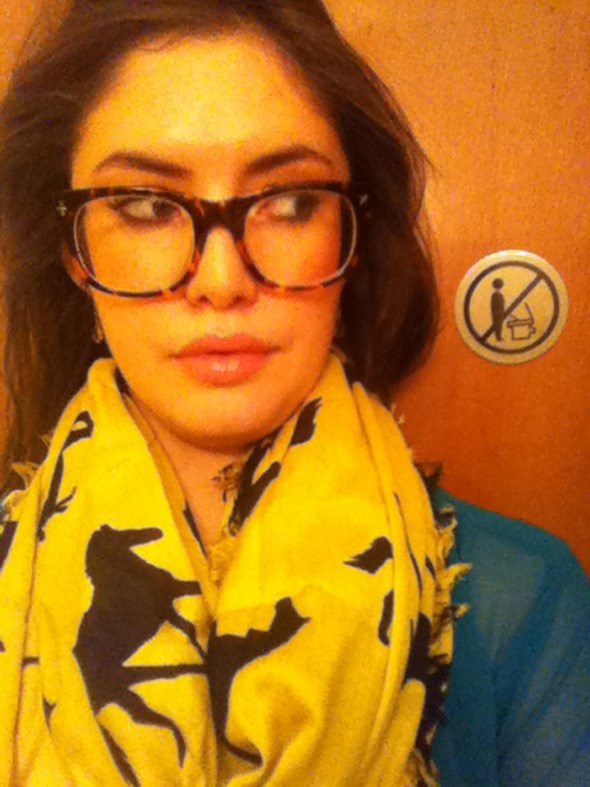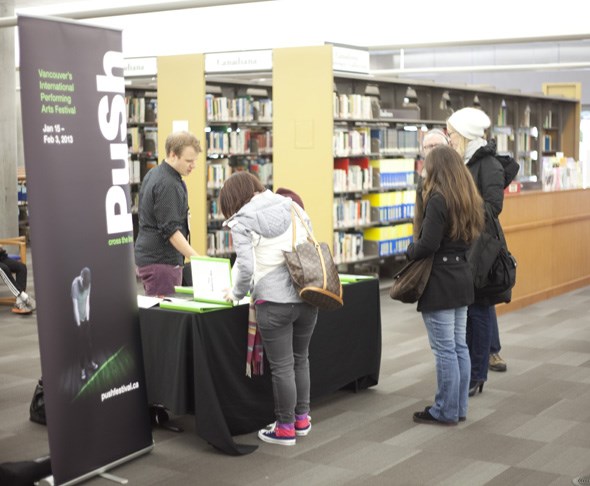Vancouver Is Awesome is a proud media partner of the 2013 PuSh Festival! Throughout the festival the folks who run things will be bringing you intimate features from behind the scenes to the front lines.

All three weekends of the PuSh Festival (Jan 18-20, 25-27 + Feb 1-3) between 12:00PM and 4:00PM, head down to the Vancouver Public Library and check out a human book at Human Library! Choose from titles like "Female Heavy Equipment Mechanic" and "Non-Binary Transgender" and be connected with the person behind the title for an enjoyable and informal conversation designed to challenge prejudice.
We asked a few questions of Zaira Petruf, one of our "human books":
Tell us a little bit about yourself and your book title
My book title is 'Refugee'. I constantly struggle with the images that this word evokes. Try a simple Google Image search of the word 'refugee' and you will know what I mean. While it is true, my immigration status for a period of time was 'refugee', the life I lead today is not a direct reflection of that period of time. It is more than that; I am more than that.
This is also the case for a lot of other immigrants and refugees or 'people with accents' that walk the streets of Vancouver. We have our intricacies and quirks. We can be 'mainstream' and 'alternative', 'well-adjusted' and 'closed-minded'. We are full of contradictions because we are all people.

Why did you want to be involved with Human Library?
My interest lies in the process of storytelling as an epistemology, challenging notions of how knowledge is created and acquired. I heavily rely on storytelling in my academic interests as a source of data and as lens to view and explain the world that surrounds us.
More specifically, I am fascinated by the questions "where are you from and how did you end up in Vancouver?". I have become more aware of the ways in which I, and other immigrants, craft and edit narratives, or specific sections of the main narrative, according to our perception of what our listeners want to, or need to hear. We may adjust and calibrate the focus of our narrative depending on how genuinely engaged our listeners are, the context of the conversation, the socio-spatial context we are share, and many other factors.
A simple question, such as 'how did you end up in Vancouver?' is riddled with intersubjectivity. The act of storytelling becomes an active organism; it has a life of its own. It is created by the one who asks and the one who answers in a constant act of negotiation. In that sense, it is a political act as 'we', storytellers, are constantly assessing our positionality in reference to our current socio-political context.
What are you expecting/hoping to experience or achieve by participating in Human Library?
At a personal level, I am hoping to come to terms with being a walking contradiction. My past was both violent and beautiful. My goal is to destabilize people's notions of what a 'refugee' is, and what it is not. To engage with audiences in the process of constructing and deconstructing narratives - together - and not as interviewer and interviewee, audience and performer but as co-thinkers, co-questioners and co-creators.
If you had the opportunity to take out another human "book", which one might be of interest to you?
I would be interested in deconstructing the title 'Drag Queen' because of the clear mental images or stereotypes that form in my head as soon as I hear that term.
Read more about Human Library here!

Human Library photo by Tim Matheson


